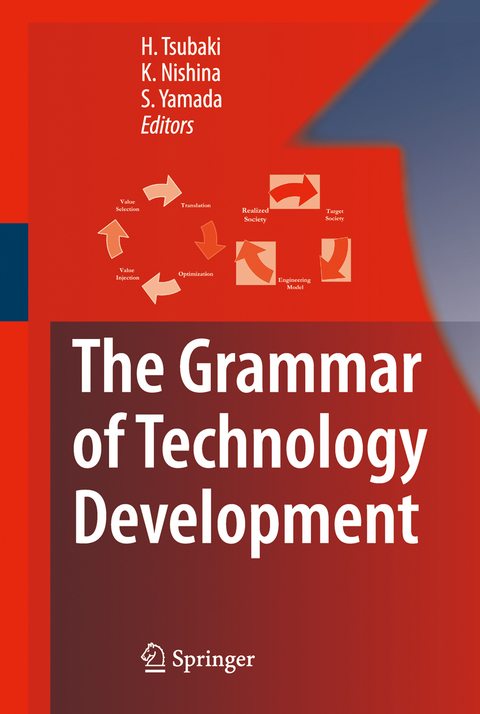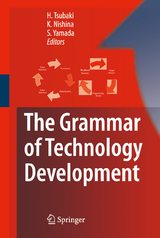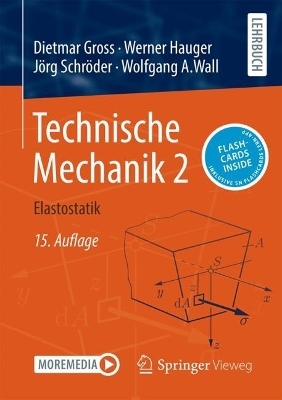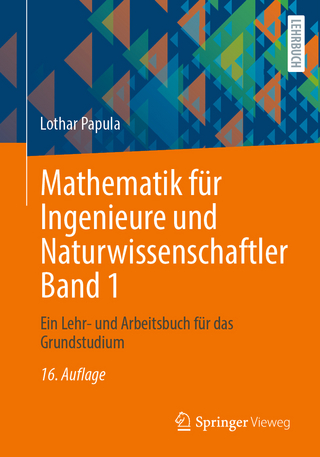The Grammar of Technology Development
Springer Verlag, Japan
978-4-431-75231-8 (ISBN)
Fusion of Digital Engineering and Statistical Approach Akira Takahashi . . . . . . . . . . . . . . . . . . . . . . . . . . . . . . . . . . . . . . . . . . . . . . . . . 1 Part I Systematic Approaches to Technology Development The Grammar of Technology Development Hiroe Tsubaki . . . . . . . . . . . . . . . . . . . . . . . . . . . . . . . . . . . . . . . . . . . . . . . . . . . 15 Informed Systems Approach Andrzej P. Wierzbicki . . . . . . . . . . . . . . . . . . . . . . . . . . . . . . . . . . . . . . . . . . . . 23 Combinatorial Usage of QFDE and LCA for Environmentally Conscious Design Tomohiko Sakao, Kazuhiko Kaneko, Keijiro Masui, Hiroe Tsubaki . . . . . . 45 Communication Gap Management Towards a Fertile Community Naohiro Matsumura . . . . . . . . . . . . . . . . . . . . . . . . . . . . . . . . . . . . . . . . . . . . . . 61 Verification of Process Layout CAE System TPS-LAS at Toyota Hirohisa Sakai, Kakuro Amasaka. . . . . . . . . . . . . . . . . . . . . . . . . . . . . . . . . . . 71 Part II (DE)2: Design of Experiments in Digital Engineering A Grammar of Design of Experiments in Computer Simulation Shu Yamada. . . . . . . . . . . . . . . . . . . . . . . . . . . . . . . . . . . . . . . . . . . . . . . . . . . . . 85 Uniform Design in Computer and Physical Experiments Kai-Tai Fang, Dennis K. J. Lin . . . . . . . . . . . . . . . . . . . . . . . . . . . . . . . . . . . 105 Adapting Response Surface Methodology for Computer and Simulation Experiments G. Geoffrey Vining . . . . . . . . . . . . . . . . . . . . . . . . . . . . . . . . . . . . . . . . . . . . . . . 127 SQC and Digital Engineering Mutsumi Yoshino, Ken Nishina . . . . . . . . . . . . . . . . . . . . . . . . .. . . . . . . . . . . 135 Application of DOE to Computer-Aided Engineering Ken Nishina, Mutsumi Yoshino . . . . . . . . . . . . . . . . . . . . . . . . . . . . . . . . . . . . 153 Part III Statistical Methods for Technology Development A Hybrid Approach for Performance Evaluation of Web-Legacy Client/Server Systems Naoki Makimoto, Hiroyuki Sakata . . . . . . . . . . . . . . . . . . . . . . . . . . . . . . . . . . 165 Polynomial Time Perfect Sampler for Discretized Dirichlet Distribution Tomomi Matsui, Shuji Kijima . . . . . . . . . . . . . . . . . . . . . . . . . . . . . . . . . . . . . 179 The Optimal Receiver in a Chip-Synchronous Direct-Sequence Spread-Spectrum Communication System Nobuoki Eshima . . . . . . . . . . . . . . . . . . . . . . . . . . . . . . . . . . . . . . . . . . . . . . . . . 201 Visualizing Similarity among Estimated Melody Sequences from Musical Audio Hiroki Hashiguchi . . . . . . . . . . . . . . . . . . . . . . . . . . . . . . . . . . . . . . . . . . . . . . . . 213
| Erscheint lt. Verlag | 15.2.2008 |
|---|---|
| Zusatzinfo | 64 Illustrations, black and white; XII, 221 p. 64 illus. |
| Verlagsort | Tokyo |
| Sprache | englisch |
| Maße | 155 x 235 mm |
| Themenwelt | Mathematik / Informatik ► Mathematik ► Angewandte Mathematik |
| Technik | |
| ISBN-10 | 4-431-75231-5 / 4431752315 |
| ISBN-13 | 978-4-431-75231-8 / 9784431752318 |
| Zustand | Neuware |
| Informationen gemäß Produktsicherheitsverordnung (GPSR) | |
| Haben Sie eine Frage zum Produkt? |
aus dem Bereich




